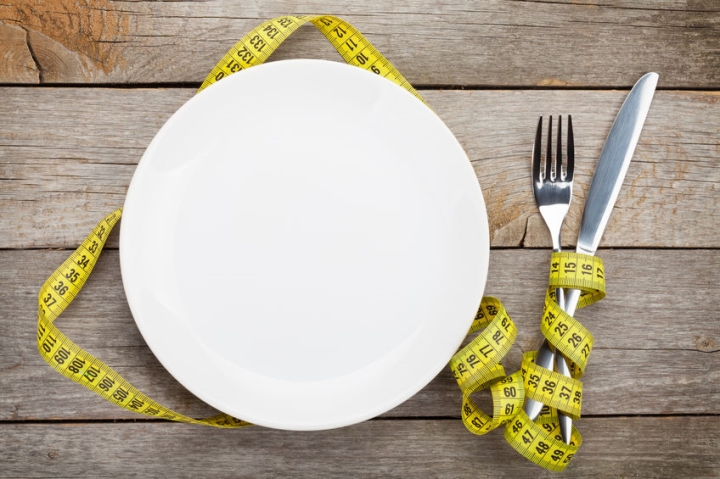

Fasting – how it can help you to shed kilos
According to the gossip mags, Jennifer Lopez fasts for at least 8 hours a day before filling up on proteins and veggies. Hugh Jackman regularly does a 16-hour fast followed by an 8-hour window when he eats. There is even a fasting app called Zero, which was developed by US entrepreneur Kevin Rose when he learned that Hugh Jackman was fasting in order to prepare for his role in Wolverine.
Intermittent fasting is not a diet, it's a pattern of eating. It's a way of scheduling your meals so that you get the most out of them. Intermittent fasting doesn’t change what you eat, it changes when you eat.
Here’s a quick guide to how intermittent fasting can help you shed those unwanted kilos and keep them off.
Choose the right plan
You have to be realistic in choosing the right plan that will work for your lifestyle and your personality. There are many different types of intermittent fasting plans with a very popular version being the 16:8, (also known as Lean Gains) where, just like Hugh Jackman, you eat for 8 hours a day and fast for 16 hours.
Another method is 5:2, where you eat normally for 5 days, then severely restrict your calories for the other 2 days (typically around 2,000 kilojoules for a woman). Research all these methods and find out which one will suit your workout routine, your work schedule, your family life, and your family goals.
What to eat and drink
The beauty of intermittent fasting is that there are no restrictions on what to eat or drink during your eating period. You can even indulge in a glass of wine, eat a slice of pizza or a scoop of ice cream if you want. But for best results, focus on healthier options such as healthy fats, lean proteins, fresh fruits, and veggies. Plan your meals during the eating window however you like. Make sure to eat enough during this time, but don’t overeat. Just enough to satisfy your stomach without compensating for the calories you lost during the fasting period.
Exercise!
Some athletes prefer to work out during their fasting period as it optimises their energy level, burns more fats, and builds more muscle mass. But if you’re an intermittent fasting beginner, you may have to take it lightly until you get used to it. Do easier forms of exercise first or arrange your workout schedule to suit your intermittent fasting schedule. Gradually work your way back to your usual workout routine after a few weeks of doing intermittent fasting.
Expect to be hungry in the beginning
When you are just beginning your journey to intermittent fasting, yes - you can expect to feel hungry sometimes, especially if you were used to eating over a more prolonged period. You may even feel a little cranky, tired and irritable, get a headache, or even feel nauseous. But don’t worry - these symptoms won’t last long. Intermittent fasting may be challenging during the first few days or up to a week, but your body will adjust eventually. After a week or so, you’ll find that your mind gets clearer, and you will have more energy. As a result, you will feel less hungry.
And remember it’s OK to start slowly – so if fasting for 16 hours is a bit too much of a stretch at first, try starting with 12 hours and then gradually increasing over a week or so until you are able to fast for 16 hours without too many hunger pains.
Avoiding the symptoms
To avoid the negative symptoms associated with the first week or so of intermittent fasting, drink plenty of water. Drink a big glass of water as soon as you wake up and keep drinking during your fast. Caffeine can also help, so don’t be afraid to knock back a cup or two of coffee or green tea. Taking a walk or doing some light stretching exercises can also help make you feel better.
Other health benefits
Other than losing weight, intermittent fasting has many other health benefits. It helps improve your digestion and can decrease bloating. You’re likely to have more energy for exercising, for your work, for your family, and life as a whole. You will have more focus and a clear mind. Your sleep will improve, and you will be able to overcome certain addictions such as sugar cravings and overeating.
Does it work?
The only way to find out if intermittent fasting works for you is to try it, and once you do, don’t give up. Intermittent fasting doesn’t just help to shed those kilos - if you continue with the program, you’ll easily be able to keep them off.
Joining a gym and establishing a daily exercise routine goes hand in glove with your new way of eating because it maximises the effects of your fasting. Don’t worry if your budget won’t stretch to a gym membership right now, we’re here to help. Just check out our fast cash loans from $1K - $5K to find out how quick and easy it is to get your hands on some extra funds. Once a loan is approved, we can usually deposit the cash into your bank account within a few hours. Apply now so you can start working on that summer body this week!